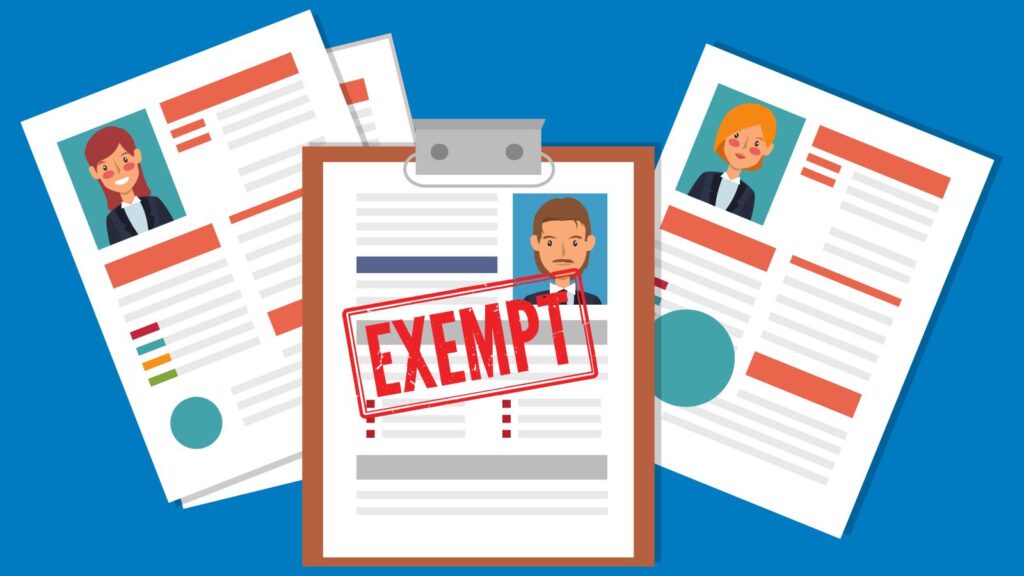
Under employment law, one term that often raises eyebrows and sparks countless questions is “exempt employee.” If you’re a hiring manager, recruiter, or even an employee in California, understanding this classification is beneficial. California labor laws regarding exempt employees are a maze of regulations, and missteps can lead to serious consequences. In this article, you learn about exempt employees in California, exploring what it means, the rules that govern them, and how to protect your business from potential legal pitfalls.
What is an Exempt Employee in California?
In California, an exempt employee escapes the clutches of California’s overtime pay laws. This means they do not receive additional compensation for working beyond eight hours a day or forty hours a week. Instead, they typically receive a fixed salary, regardless of how many hours they put into their work.
Exempt employees in California fall into various categories, each with its own unique criteria for qualification. For example, to be considered exempt, an executive employee must primarily manage the business and direct the work of at least two other employees. It’s like a puzzle, with each category having its own pieces.
Rules for Exempt Employees in California
While they may be exempt from some regulations, California labor laws still have guidelines employers must follow. According to California labor laws for exempt employees, these employees are entitled to meal and rest breaks, just like their non-exempt counterparts. Additionally, if an exempt employee’s journey with your company ends, you must pay them for any unused vacation time. These rules emphasize the importance of treating all employees fairly.
There is also the matter of minimum salary requirements. In California, this figure varies depending on the number of employees in your organization. For employers with 26 or more employees, the minimum salary for exempt employees is $58,240 annually. For those with 25 or fewer employees, it’s $54,080 per year. This is where the financial jigsaw piece fits into the puzzle.
Misclassification of Exempt Employees
Misclassifying employees as exempt when they should be non-exempt is like trying to fit a square peg into a round hole – it does not work and can have serious consequences. If an employee is wrongly labeled as exempt, they may be entitled to back pay for the overtime they should have received, along with penalties and interest. In some cases, employers might even face fines or sanctions for not adhering to California’s labor laws. It’s a legal quagmire you’d want to steer clear of.
Protecting Your Business
Protecting your business interests is paramount as a business owner or hiring manager. Ensuring that your employees are accurately classified and that your payroll and time tracking systems are up to snuff can be the fortress that shields you from costly legal disputes. It’s like having a well-constructed barrier against potential storms.
How Many Hours Can a Salaried Exempt Employee Be Forced to Work in California?
Salaried exempt employees have no legal limit on the number of hours they can put in per week, according to federal law and California law. However, there’s a significant “but” here. Employers are legally obliged to provide a safe and healthy work environment.
If salaried exempt employees are made to work excessively long hours without regard for their well-being, employers could find themselves in hot water. California law even guarantees one day of rest per seven-day workweek, with strict limitations on requiring employees to work more than six days a week.
Even though there’s no legal cap on their working hours, employers can override the salaried exempt status and switch to an hourly pay structure under specific conditions. If the employee doesn’t meet the criteria, this can be a strategic move to make them eligible for overtime pay.
Understanding who qualifies as an exempt employee in California is not just a matter of legal compliance; it is a crucial aspect of effective human resource management. Compliance with California labor laws regarding minimum salary, rest and meal breaks, and unused vacation time is paramount. So, as an exempt employee, consult with an experienced employment law attorney if you are in doubt.